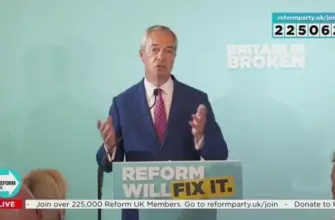A recent shift in policy has brought considerable relief to Britain’s working drivers, particularly those who rely on vans for their livelihoods. The government’s decision to extend the deadline for banning the sale of new petrol and diesel vehicles from 2030 to 2035—a move initially championed by Labour—has been widely welcomed within the trades sector.
Labour’s Future of Roads minister, Lilian Greenwood, emphasized the benefits of this revised timeline. “This adjustment provides the industry with much-needed certainty, stability and confidence,” she stated.
The new policy also allows for the continued sale of hybrid vehicles until 2035, including both full hybrids like the Toyota Prius and plug-in models. This aims to facilitate a more gradual transition within the automotive sector while still pursuing commitments toward achieving net zero emissions targets.
Speaking with tradespeople in Cheshire, GB News reporter Steve Bennett gauged their reactions to this policy change. The response was overwhelmingly positive.
One tradesman, speaking anonymously to the People’s Channel, described the delayed ban as “a weight off our shoulders.” He elaborated:
“It’s a big relief, really. I can just carry on working without having to worry about it. Replacing a van is a significant expense; we’re happy to keep using what we have and focus on earning money.”
The concerns surrounding the transition to electric vehicles were further highlighted by another self-employed tradesman.
“It’s really important for our industry to be able to keep their current vans. It frees up vital funds that can be directed towards materials and supporting ourselves.”
He added: “We need that money for everything – tools, supplies… it’s crucial we don’t have to divert it to a new vehicle.”
The impact on businesses with larger fleets was also significant. One tradesman explained:
“The biggest thing is that I don’t need to buy an entirely new fleet of vehicles right now. We lease our current vans, and switching everything over to electric—especially considering the heavy loads we often carry—simply wouldn’t be practical for our business.”
He also noted the importance of continuing with fossil fuel-powered vehicles “for the time being.”
A common thread throughout these conversations was a perception that current electric vehicle technology isn’t yet adequate for demanding professional use.
“Electric cars aren’t quite up to it yet,” one van driver observed. “We do a lot of driving and frequently carry heavy loads. For me, keeping my diesel van running as long as possible is the best option.”
Ultimately, the policy shift has provided a sense of stability and allowed tradespeople to focus on their core business—keeping Britain’s economy moving.
- The deadline for banning new petrol and diesel vehicle sales has been pushed back to 2035.
- Hybrid vehicles will be permitted for sale until 2035.
- Tradespeople expressed relief at the delay, citing concerns about the cost of electric vans and their current suitability for heavy-duty work.








